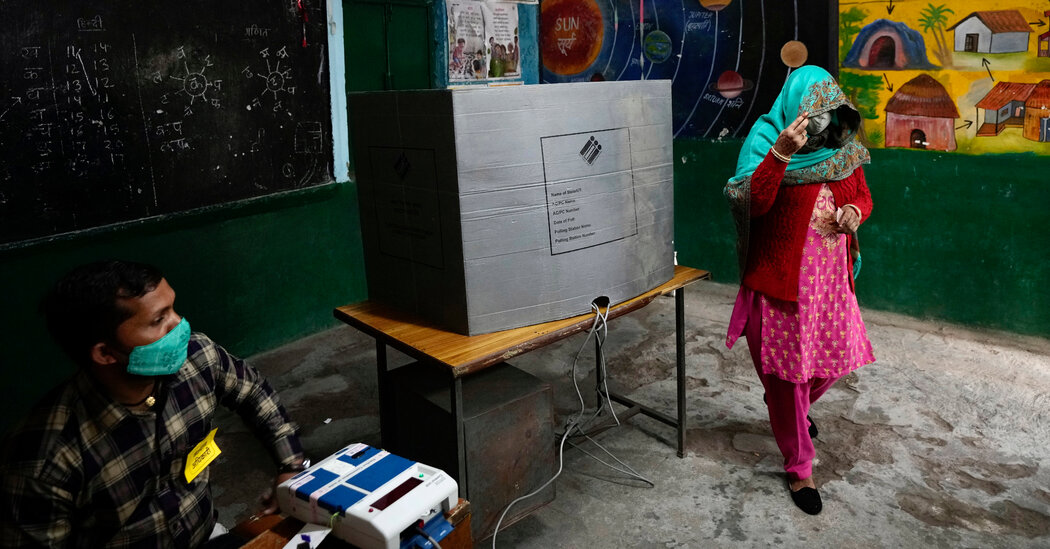
As campaigning ended this week, economic issues were foremost on the minds of voters interviewed in western Uttar Pradesh.
“What we want is better public service like good education, good health facilities and employment for our children,” said Surender Yadav, a sugar cane farmer and a member of an O.B.C. group who said he had voted for the B.J.P. in 2017 but would not again.
“These are the basic issues, but there has been no improvement,” he said.
In the city of Modinagar, an opposition candidate, Sudesh Sharma, was showered with flower petals and fed sweets while campaigning.
“You give us employment,” one person in the crowd shouted, “we give you vote.”
Still, many voters perceive the B.J.P. as less corrupt than the opposition parties that were previously in power. They say they are happy with the government’s signature welfare programs in the state, including the distribution of cooking gas cylinders to women, the expansion of food rations and the construction of modest houses of brick and cement.
“B.J.P. is doing good work. Law and order is under control. Girls can go out, roads are good, poor people were given houses,” said Sachin Kumar, a 25-year-old mechanic on the outskirts of Meerut. “We will vote for Yogi and Modi.”
Pandemic and Protest
The elections in Uttar Pradesh and the four other states could also reflect public sentiment on the B.J.P.-led government’s response to the pandemic and to yearlong protests by farmers that extracted a big concession from the usually unyielding Mr. Modi.
A catastrophic second wave of the coronavirus and a halting government response filled hospitals and crematories. At one point, dozens of bodies washed up on the banks of the Ganges River in Uttar Pradesh, presumably victims of Covid-19 dead.



